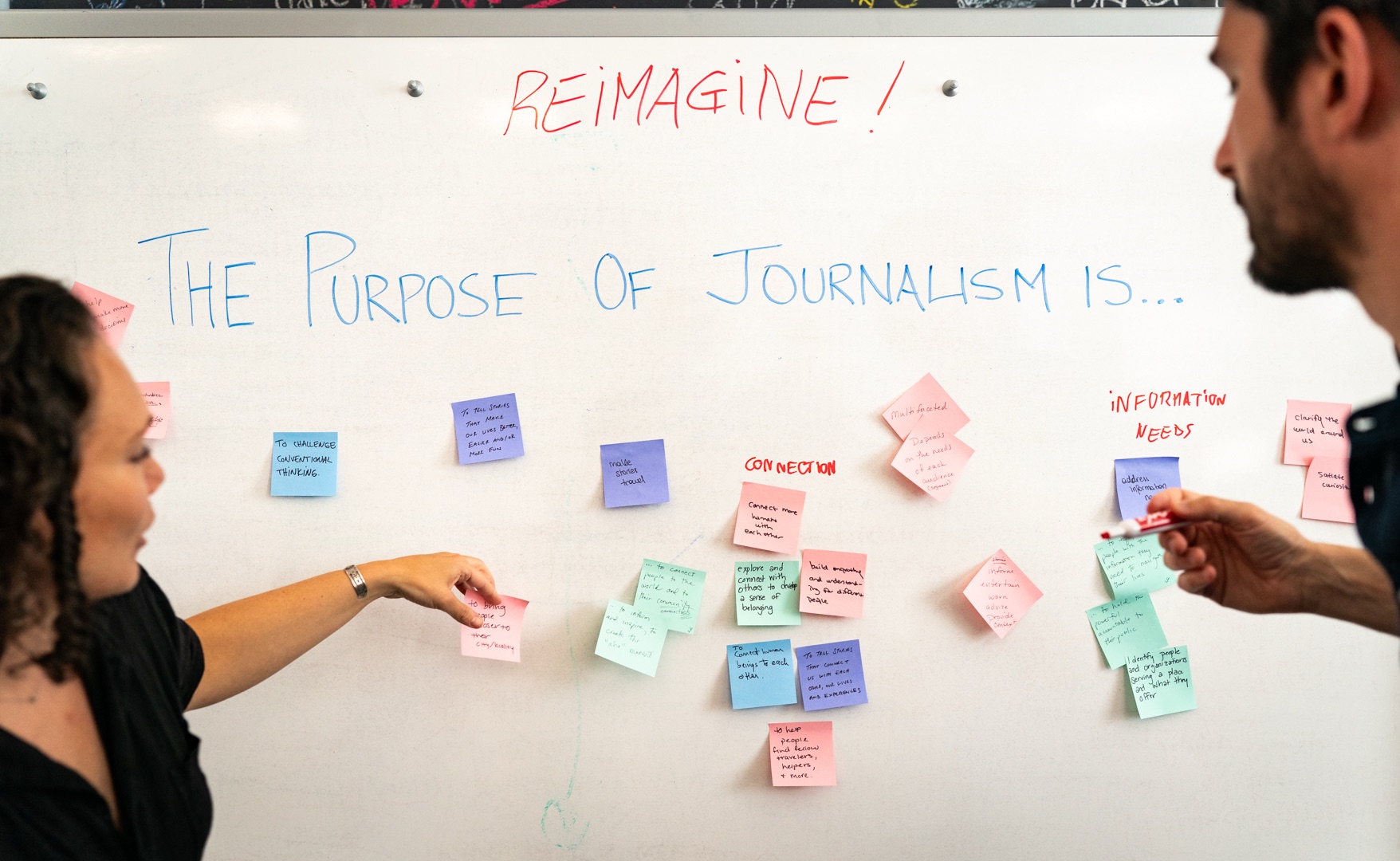The Lab’s profiles are Q&As with smart people who are shaping the future of media. Follow the series.
As a journalist who is about to graduate, I find easy inspiration in Sisi Wei. She’s a recent Northwestern grad (class of 2011), which is where I’m studying. More importantly she’s already had a big impact in journalism. She's a news application developer at ProPublica and a co-founder of Code with me, taking on the role of technical educator and ambassador for journalists of all kinds. She’s also a pioneer in news games, changing the way people look at news and information. Read on to find out about her inspirations, passions and what it's like to to be a newsroom developer:

What's a story that helps explain how you got to where you are professionally?
In either elementary school or middle school, I read a book in class about a little girl who loved to write so much she started her own newspaper. So I asked myself, why can't I do that? Thus was born the "Rainbow News," a two- to three-page, two-column publication. Each color of the rainbow represented a different section, like school lunch or advice. But I even got other students to submit short fiction! The paper itself probably lasted three issues max, but I was pretty proud of myself.
Despite this experience however, when I was in high school, I never wanted to be a part of the student newspaper until my English teacher recommended it to me.
Advice for current j-school students?
Take advantage of being a college student and take classes in unexpected areas. You're at a time in your life in which extremely smart experts are being paid to be your professor, and are required to help you when you have questions! How amazing is that? If you're going to be a journalist, you'll be dedicating yourself to learning everything you can soak up. There's no better time to build up that knowledge than right now in your lives.You're at a time in your life in which extremely smart experts are being paid to be your professor, and are required to help you when you have questions! How amazing is that?
Also, if you're interested in using technology for journalism, go for it. J-schools are adapting, but usually there's only one or two classes you can take related to data journalism or interactive graphics and apps. Maybe three if you're lucky. But the secret to learning how to code is to do it. It's how most of us in the industry learned.
If you could change one thing about how technology/programming is taught in J-schools, what would it be?
Stop treating data journalism and programming classes like electives, because students need to be introduced to how it can help them tell stories as part of the core curriculum. I don't mean that a data journalism course should be mandatory (though perhaps I should mean that), but my recommendation is that the basic fundamentals of good data analysis and programming skills should be taught in one of the first journalism courses students take. It doesn't need to take up an entire quarter or semester, but students should be introduced to how these skills can improve their journalism at the onset.
Can you walk us through a day in your life at ProPublica?
What I absolutely love about being a news applications developer at ProPublica is how different every day at work can be. For example, yesterday I analyzed data points I've been collecting for a week, spoke with a source, and read through a few academic papers about censorship. Today I developed a Pinterest-style post on "Why Develop in the Newsroom?" that featured 10 gifs.
No matter what day it is however, the work I do rotates around five main areas: reporting, data collection, data analysis, design, and development. Any one of our developers has the ability to take a project from beginning to end, and the rest of us pitch in when he or she needs help.What I absolutely love about being a news applications developer at ProPublica is how different every day at work can be.
How are you using technology to create change in the world?
When I first started at ProPublica, I was lucky enough to work with Jeremy Merrill, Charles Ornstein and Tracy Weber on a new version of Dollars for Docs. The app lets readers look up which pharmaceutical companies are paying their doctor, how much they're paying, and for what reason. It's no surprise that it's one of ProPublica's most popular apps, and it would not have been possible without using technology to aggregate and extract the data. But it doesn't stop there. Just look at any ProPublica app and you'll get the same story of impact through technology.
What applications do you have open while you're working?
In no particular order: Transmit, iAWriter, Adium, Skype, MewzChat (the result of Mike Tigas customizing CryptoCat for ProPublica's internal uses), Sublime 2, Chrome and of course, Terminal.
What changes have you made or are you looking to make to the Code With Me workshops since starting them last summer?
Between every single workshop, and even sometimes during the workshop itself, my co-founder Tom Giratikanon and I try to improve and add to the curriculum, which is hosted on Github. We ask all of our students and mentors to give us rigorous feedback, and use the ratings and comments we receive as a indication for which of our presentations are hitting or missing the mark. Then we work on the ones that need improvement before going to our next workshop.
We're also trying to create more tools that anyone can use, even if they can't come to a workshop. We know that by keeping our mentor-student ratio low, we're also limiting the number of students we can take, so we're trying to figure out how we can help more journalists at once, without changing the Code with Me experience.
In Portland, we launched Box Model Ninja, a short game that helps students understand how CSS properties like margin and padding fit together. We'd like to make more free, interactive teaching materials going forward, so if you have an idea, I'm all ears.
In a recent Source piece you discussed using games to help readers understand complex subjects. Have you found a way to measure how successful this is?
This is a really good question, and one that has been studied in the educational games space for quite some time. The short answer is that yes, researchers have done many studies on whether games can make a significant impact from a learning perspective, but no, I have not begun to figure out how we can measure our own success in news games. Just from the perspective of people who have played a game, we've all effectively learned how a complex system (a.k.a. any game) works. If I can successfully get more news organizations to start making news games, I'd be more than happy to start looking into ways to analyze our own success.
Just as a fun fact to throw in here, since we're talking about using games to understand complex subjects: A public school in New York City called Quest to Learn, was launched in 2009 with a entire curriculum based on playing games!
About the author





